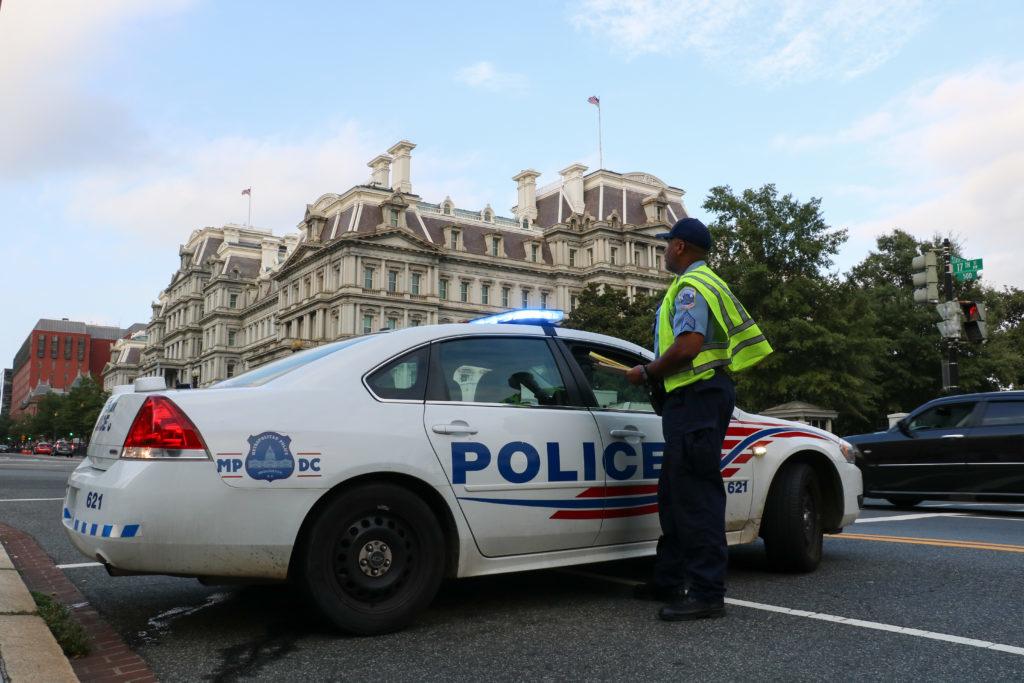D.C. officials are helping city police find affordable housing to entice more officers to live in the city they patrol.
District officials want to recruit and retain more D.C. residents to the Metropolitan Police Department by providing funding for housing in the city. Rising housing costs in the District are pricing many officers out of the areas they patrol, officials said, and experts said that could mean police have less knowledge about the communities they serve.
Six D.C. Council members, including Charles Allen from Ward 6, introduced a housing amendment in February designed to help first responders obtain $10,000 grants and deferred loans to purchase housing in the District and allowing people to pay off portions of the bills later. The bill is currently under Council review, according to the Council’s website.
Erik Salmi, Allen’s communications director, said Allen introduced the bill because D.C.’s soaring housing costs make it difficult for many officers to afford to live in the city.
“I think anytime you can have your police force have more people living in the community that they police, being there when they’re off hours, that helps form those deeper bonds around community policing,” Salmi said.
MPD has made improving community relations a major priority in the last year. The department recently reorganized police sectors to increase accountability and improve response times.
Mayor Muriel Bowser reserved $11.7 million in her proposed budget to promote recruitment and retainment of officers in the department, including $2.2 million to fund housing programs that give grants and support to officers looking for housing in the city.
“We want them to choose to buy a home in D.C.,” she said Tuesday at a roundtable discussion with student journalists.
MPD spokeswoman Aquita Brown said in an email about 84 percent of MPD officers reside outside of D.C.
Although the department does not aim to hire a certain number of D.C. residents each year, recruiting officers within the District has always been a priority, Brown added.
“Recruiting officers from within the city helps officers have a greater understanding of the communities and people the department serves,” she said.
MPD does not require officers to be D.C. residents to be on the force, but the department prefers recruits who live in the city, according to MPD’s website. A starting officer’s salary is a little more than $55,000 a year, while monthly rent in the District costs about $2,600 on average, according to the MPD website..
Patrick Burke, the executive director of the DC Police Foundation, a financial and community support organization for MPD, said he wanted to see the city do more to make housing affordable for officers through mediums like the Home Purchase Assistance Program, a program that aides first time home buyers with a maximum first loan of $417,000. Burke bought his first home in D.C. through HPAP.
“I think programs like that are very helpful to get officers to buy their first property because once you’re in, you’re hooked,” he said.
Burke said the superior education systems in surrounding Montgomery and Fairfax counties draw officers with families to the suburbs.
Other cities have offered grants to first responders to live in the communities they serve. In Baltimore, the city’s housing department provides some officers, firefighters and teachers $5,000 to buy homes in the city through an application program, according to the department’s website.
Despite MPD’s focus on recruiting officers from D.C., experts said that shouldn’t be the main concern in deciding officers to hire.
Dennis Kenney, professor of the John Jay College of Criminal Justice, said that although it is preferable for officers to be from the communities they police, it’s often not possible because of high housing costs in cities.
Kenney said recruiting people who live in the community does not always create a police force that is more knowledgeable about its city.
“You have the same problem even within the city,” Kenney said. “For example, the officer who lives in Georgetown might not know any more about the citizens who live in Southeast than the officer who lives in Rockville.”
In the largest 75 cities in the country, about 60 percent of officers do not live in the cities that they work, according to data collected by FiveThirtyEight in 2014.
Curtis Cope, a police practices consultant at Curtis J. Cope Consulting in California, said that although homegrown officers will have a better geographical feel for the community, that does not necessarily mean they will have a better understanding of the people who live there.
“That levels out in a relatively short period of time because of the requirement that you go out and learn your beat as part of that training process,” he said.
Justine Coleman contributing reporting.





